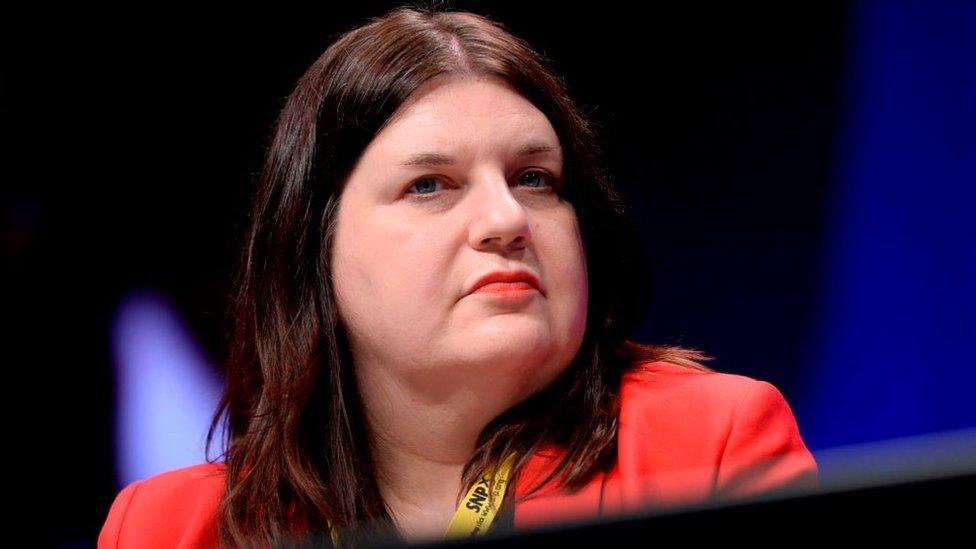Glasgow council declares 'housing emergency'
- Published
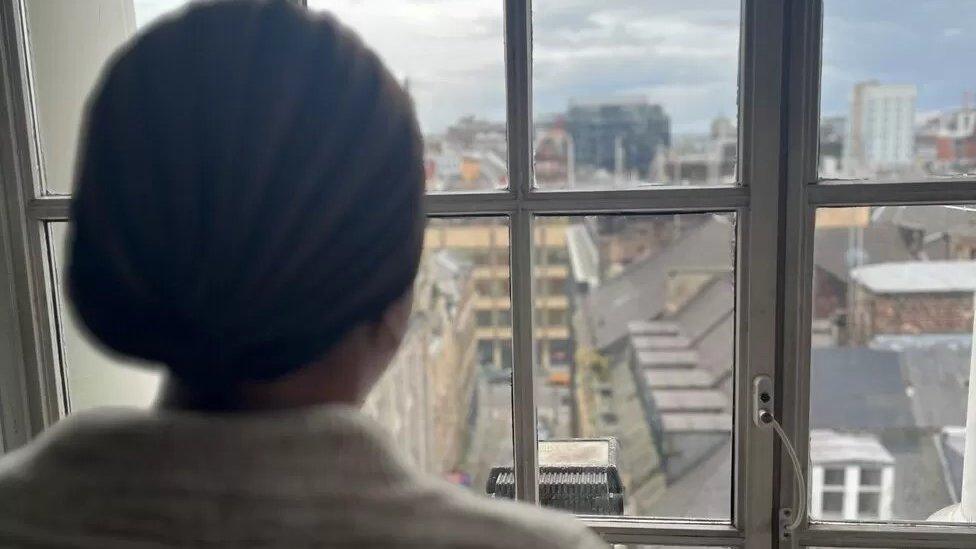
Glasgow has become the second Scottish city to declare a "housing emergency" amid mounting pressures on homelessness services.
A city council committee agreed the move due to "unprecedented pressures" facing the local authority.
The council has more than 5,200 open homelessness cases.
Meanwhile, the number of homeless refugees has doubled after a streamlined asylum process was introduced by the Home Office in June.
The council has already called on the UK government to provide financial as it expects to see more than 1,400 homelessness applications from people granted asylum before the end of 2023.
The UK government previously said it offered "ample support" to refugees granted leave to remain.
Edinburgh City Council became the first Scottish city to declare a housing emergency earlier this month.
Argyll and Bute Council did the same in June.
Glasgow's administration committee has now followed suit.

What does declaring a 'housing emergency' actually mean?
Well, it's a good question and one I've been asked a few times in the last month.
The councils have their own action plans to alleviate the mounting pressure in the housing system - like getting empty council houses back into circulation and investigating the use of modular housing.
But the actions taken by Edinburgh City Council and Glasgow's administration committee are a signal to government that things aren't working and there needs to be intervention.
Essentially, they are lobbying for more funding from both the Scottish and UK governments. It's a similar move being taken by local authorities in England.
In Scotland, there are record numbers of children in homeless accommodation. Scotland's biggest city has seen a 44% rise in homeless cases since 2019, while a two-bedroom flat in the west of the capital will attract more than 300 bids.
In Edinburgh, privately-owned ex-council houses are rented back to the council to house the homeless.
A shortage of social housing (sold off under Right to Buy) and the rising rents of the private sector mean lower income households will either be priced out, or find themselves spending years in temporary accommodation waiting for a housing association home.
Cynics may say that there are political considerations in these declarations - a Labour council in Edinburgh pointing the finger at SNP-run Holyrood, or an SNP council in Glasgow blaming Tory-run Westminster.
But actually, at the ground level, there is consensus among opposing councillors that this is a dire situation.

Asylum decisions
Councillor Allan Casey, Glasgow's homelessness convenor, said the council "urgently needs resources" to deal with demand.
Mr Casey said: "As our report outlines, referrals from Mears, the company which currently provides accommodation for those awaiting asylum decisions here in Glasgow, have doubled in recent months.
"The city is experiencing an overwhelming increase in people presenting as rough sleepers as well as a significant rise in individuals, from elsewhere in the UK, seeking assistance here in Glasgow."
In a bid to cut the lengthy backlog of asylum claims, the UK government announced plans this year to streamline the application process for claimants from Afghanistan, Eritrea, Libya, Syria and Yemen.
Some claimants from Sudan are also being considered under the new process.
Glasgow is the main dispersal city in Scotland for successful asylum seekers.
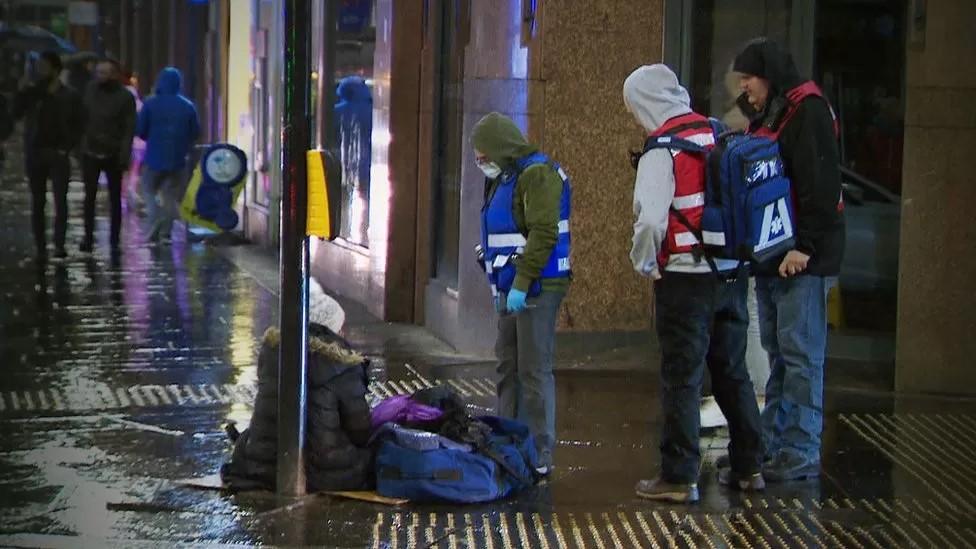
Rough sleeping is also on the rise
Since the decision, a council report showed the number of single people being granted asylum in Glasgow rose from 44 a month in June to 137 in October.
The number of families being granted refugee status each month rose from 21 to 39 over the same period.
Homelessness services anticipate a budget overspend of £23.6m. This has been revised down from a previous estimate of £27m.
Homelessness charity Shelter Scotland also pointed to historic problems with a shortage in social housing and unaffordable costs of private rent.
Director Alison Watson said: "Thousands of children in Scotland's largest city have nowhere to call home, private rents are out of control, and overstretched homelessness services simply can't cope with demand - Glasgow is clearly in a housing emergency.
"The root cause of the city's housing emergency is a chronic lack of social housing but it's been exacerbated by a cost-of-living crisis, the pandemic, as well as the uncaring, thoughtless, actions of the Home Office.
"By coming together to acknowledge that reality today, councillors now have licence to deliver the emergency response needed - it's vital they do so."
Glasgow's declaration of a housing emergency comes four weeks after a full meeting of Edinburgh Council did the same.
Councillors in the capital cited the city's record homelessness figures along with a severe shortage of social rented homes and spiralling private rental costs.
And in June, councillors in Argyll and Bute agreed a similar motion.
Scottish Housing Minister Paul McLennan said streamlining the asylum process was "poorly thought out and has left local authorities unable to plan".
He said Refugees Minister Emma Roddick had written to the UK government to ask for more funding for councils.
Mr McLennan added: "The housing sector across the UK was already feeling the impact of sky-high interest rates and inflation caused by the mini-budget and Brexit."
He said Scotland has led the UK in delivering affordable homes and those for social rent.
"I have regularly met with representatives from Scotland's local authorities and have actively engaged with them to find solutions to help address housing pressures in their area," he said.
The Home Office has been asked for a comment.
- Published2 November 2023
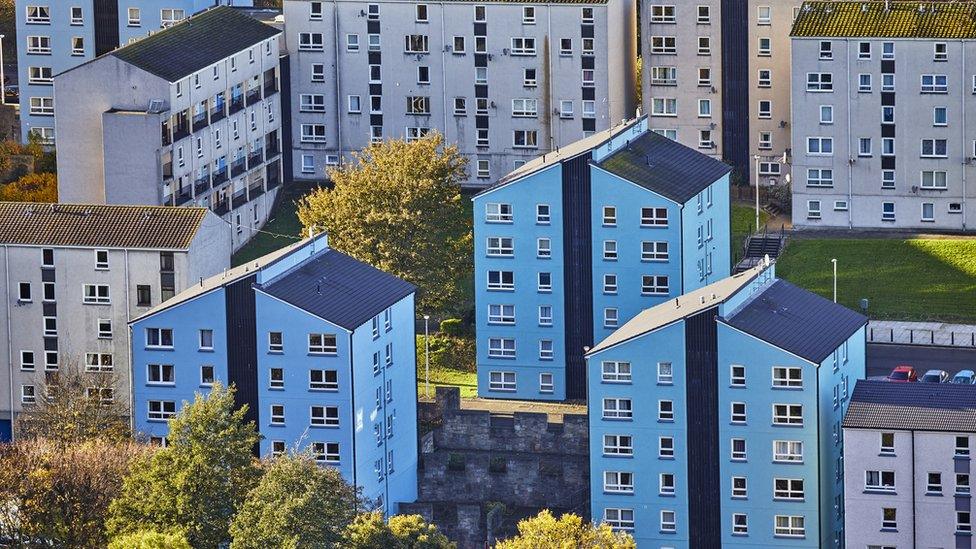
- Published31 October 2023
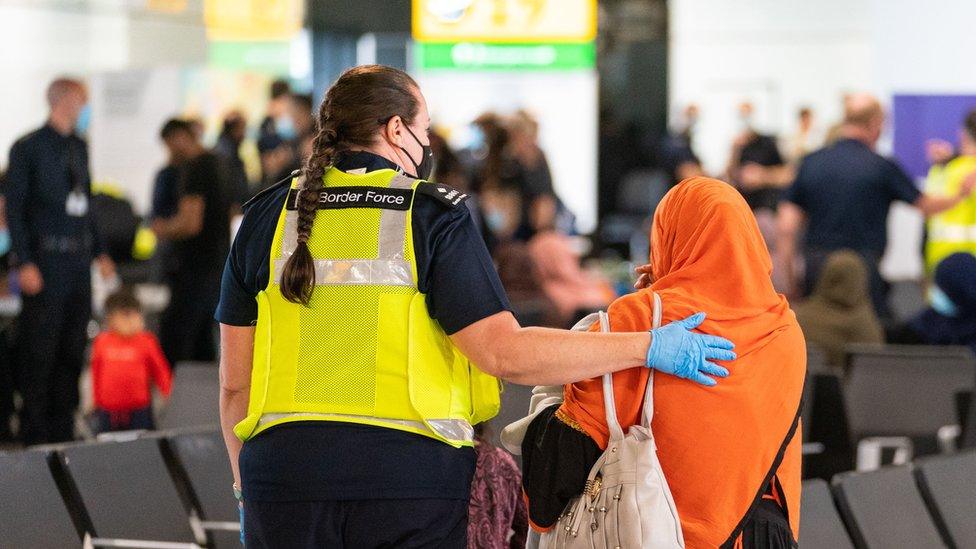
- Published12 October 2023

- Published7 August 2023
